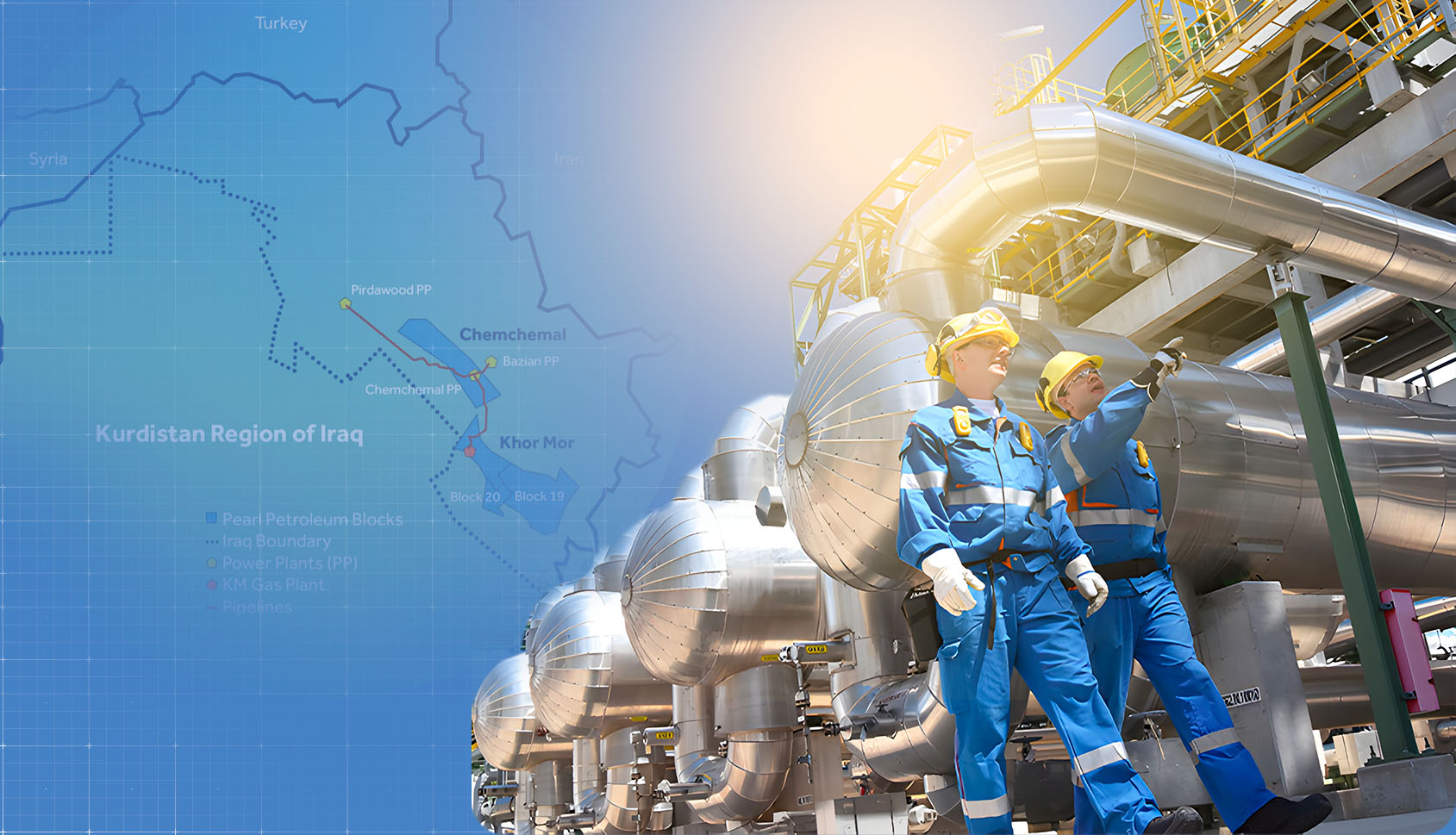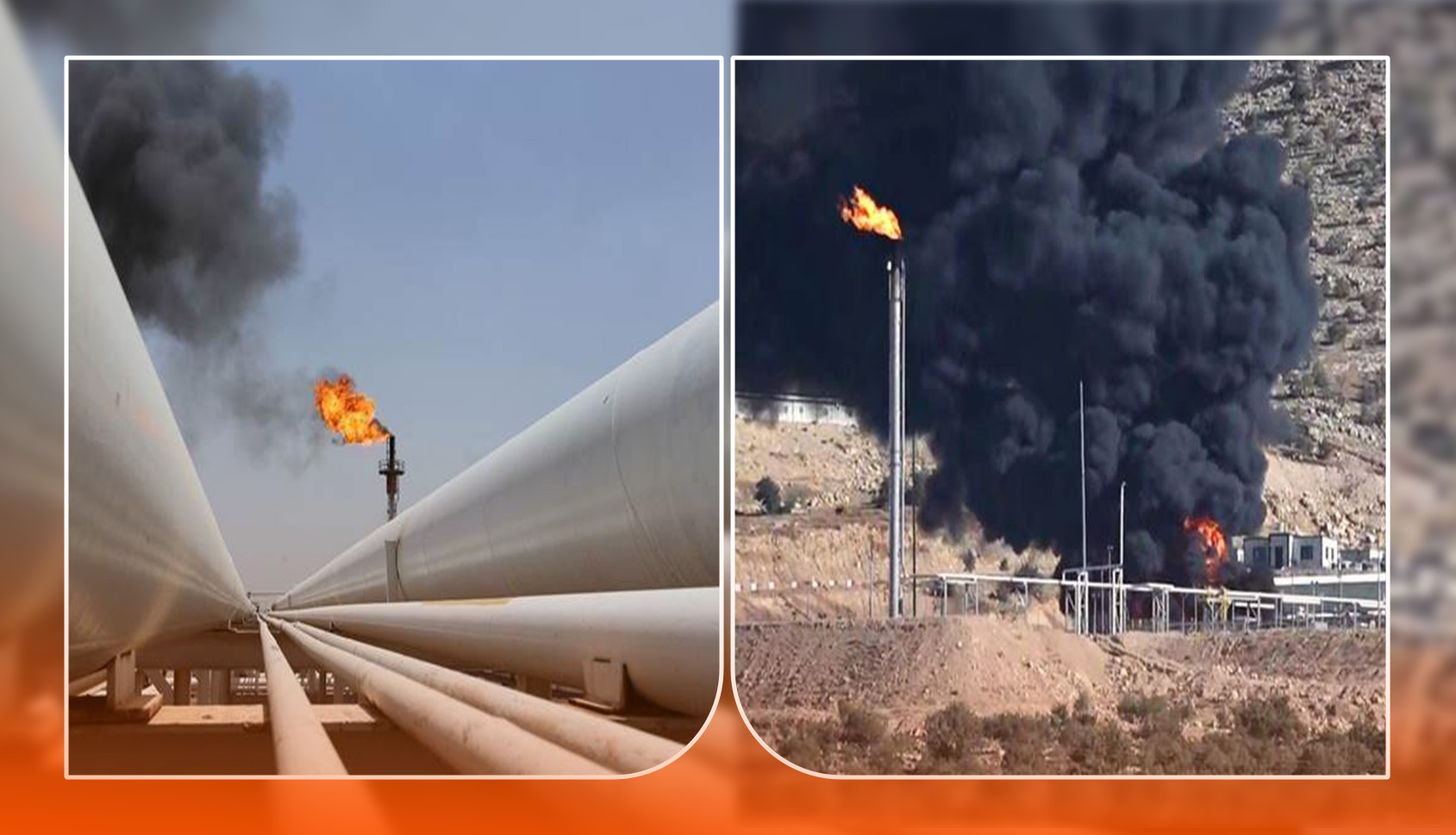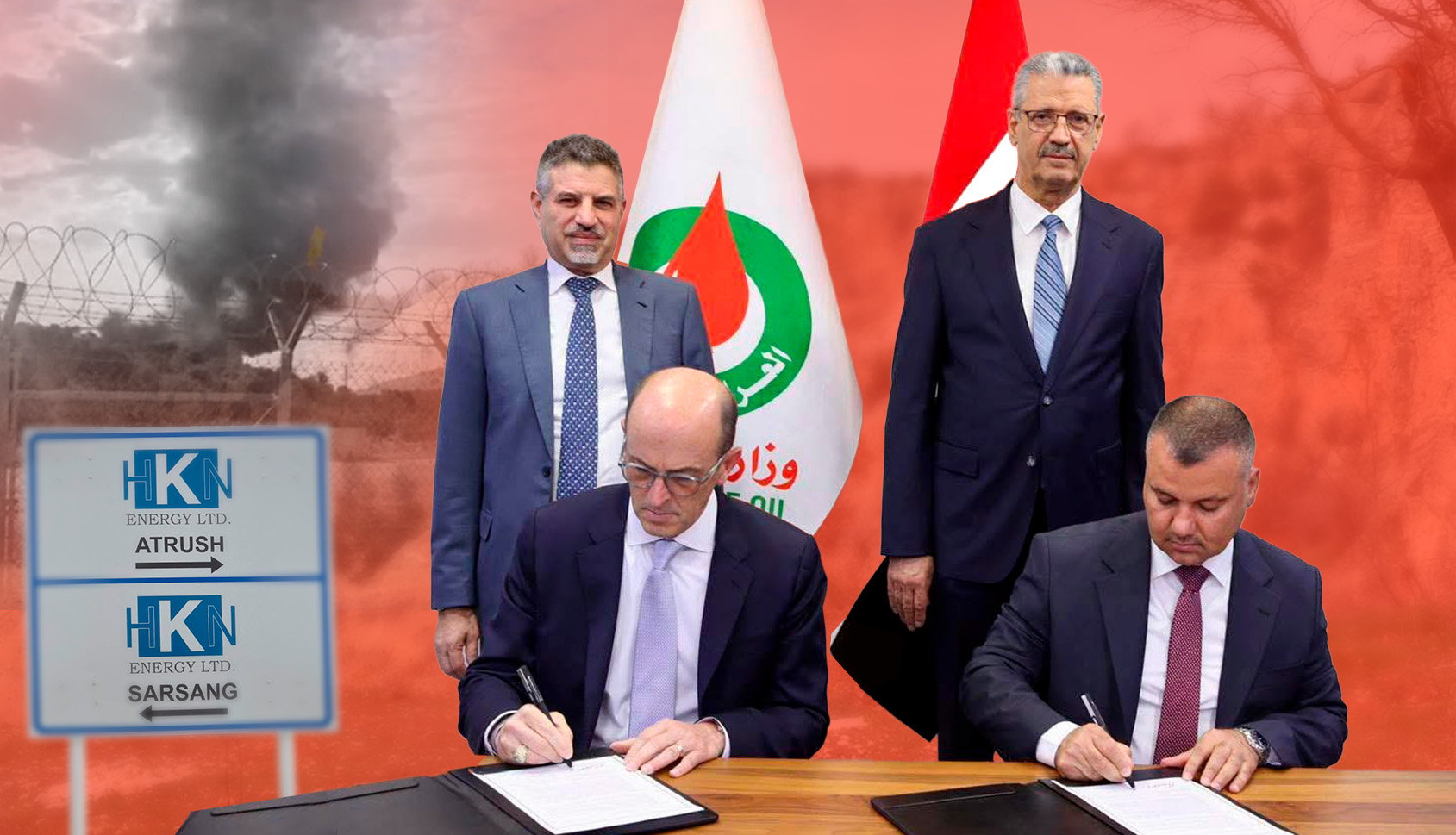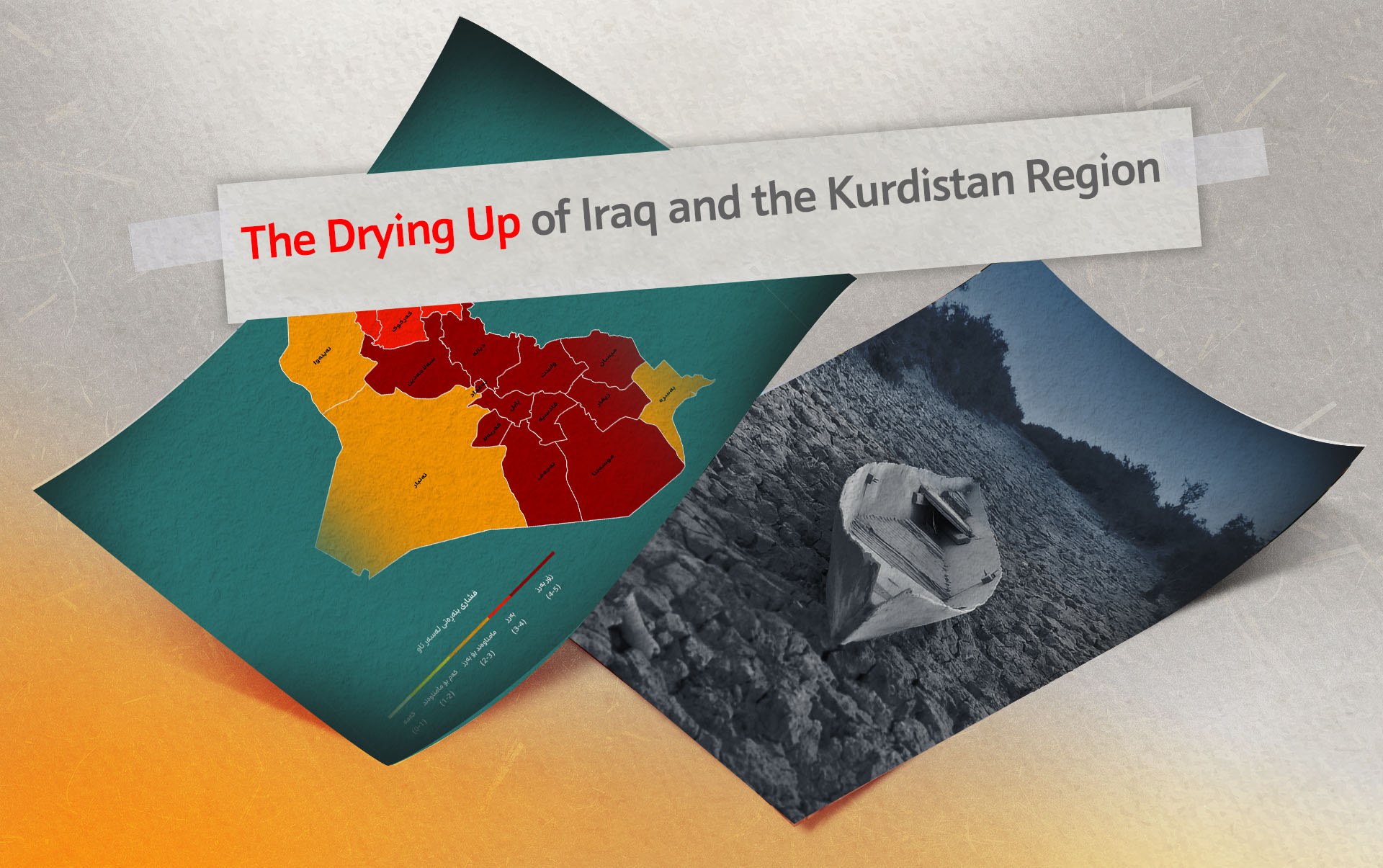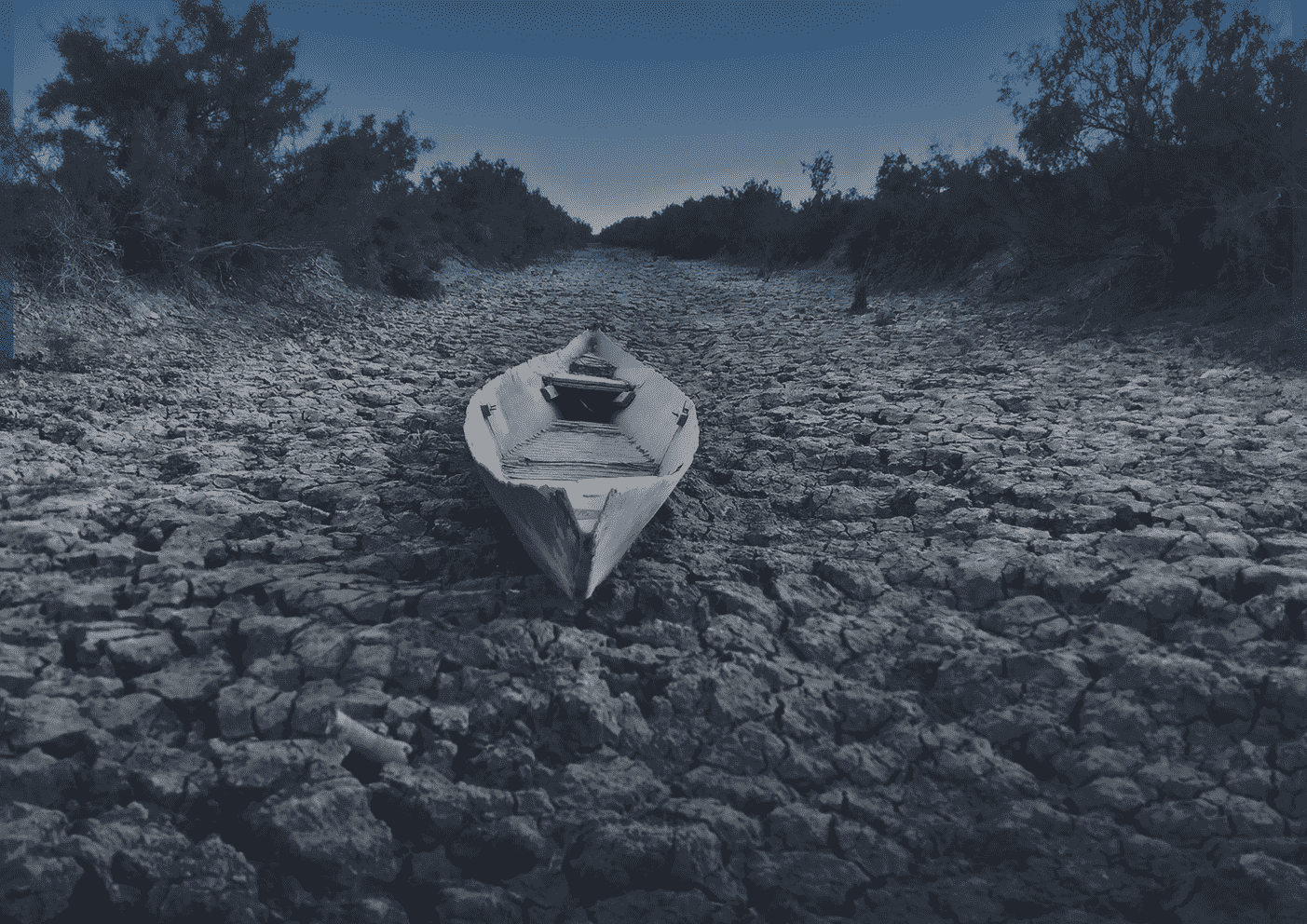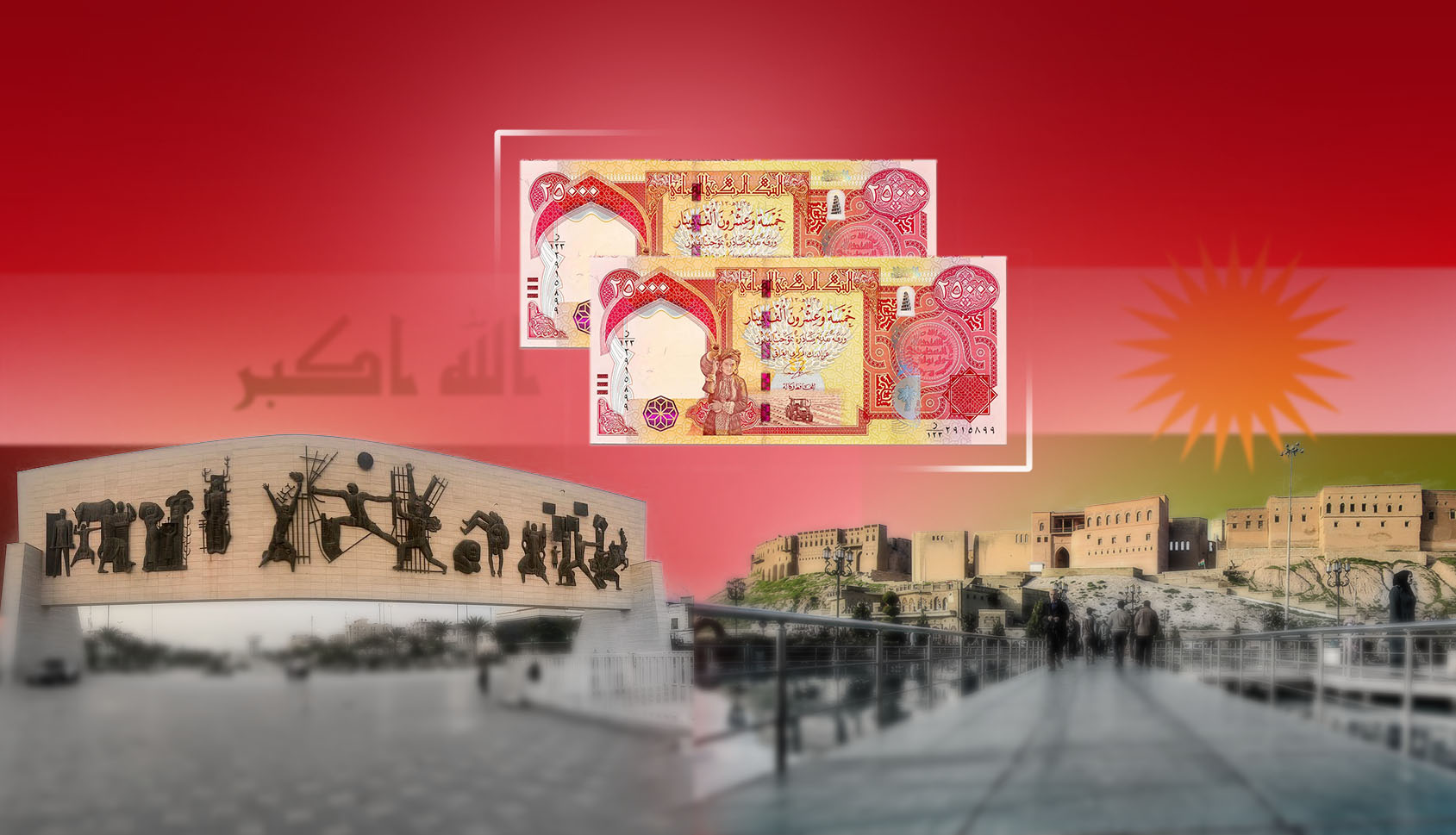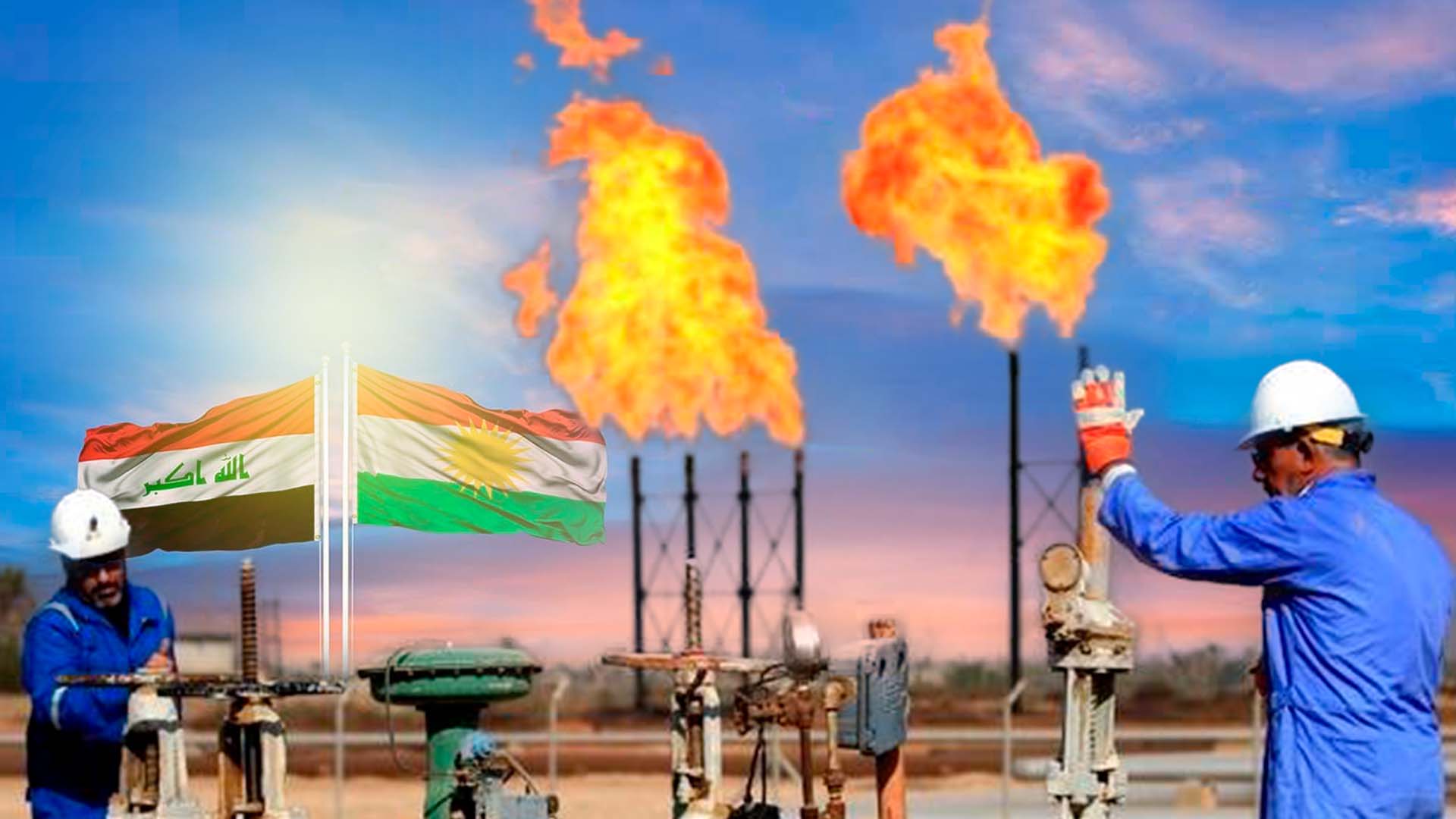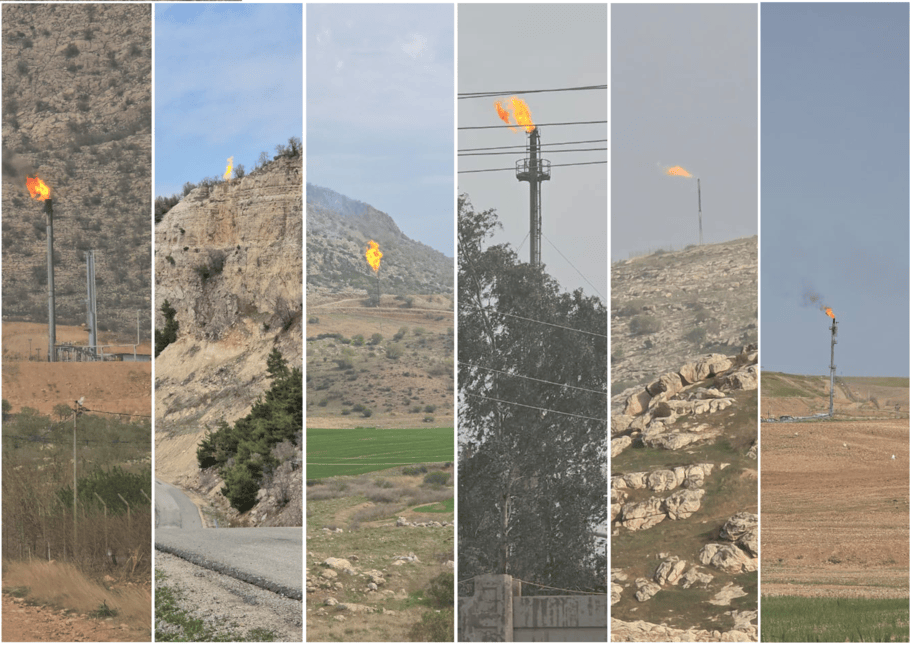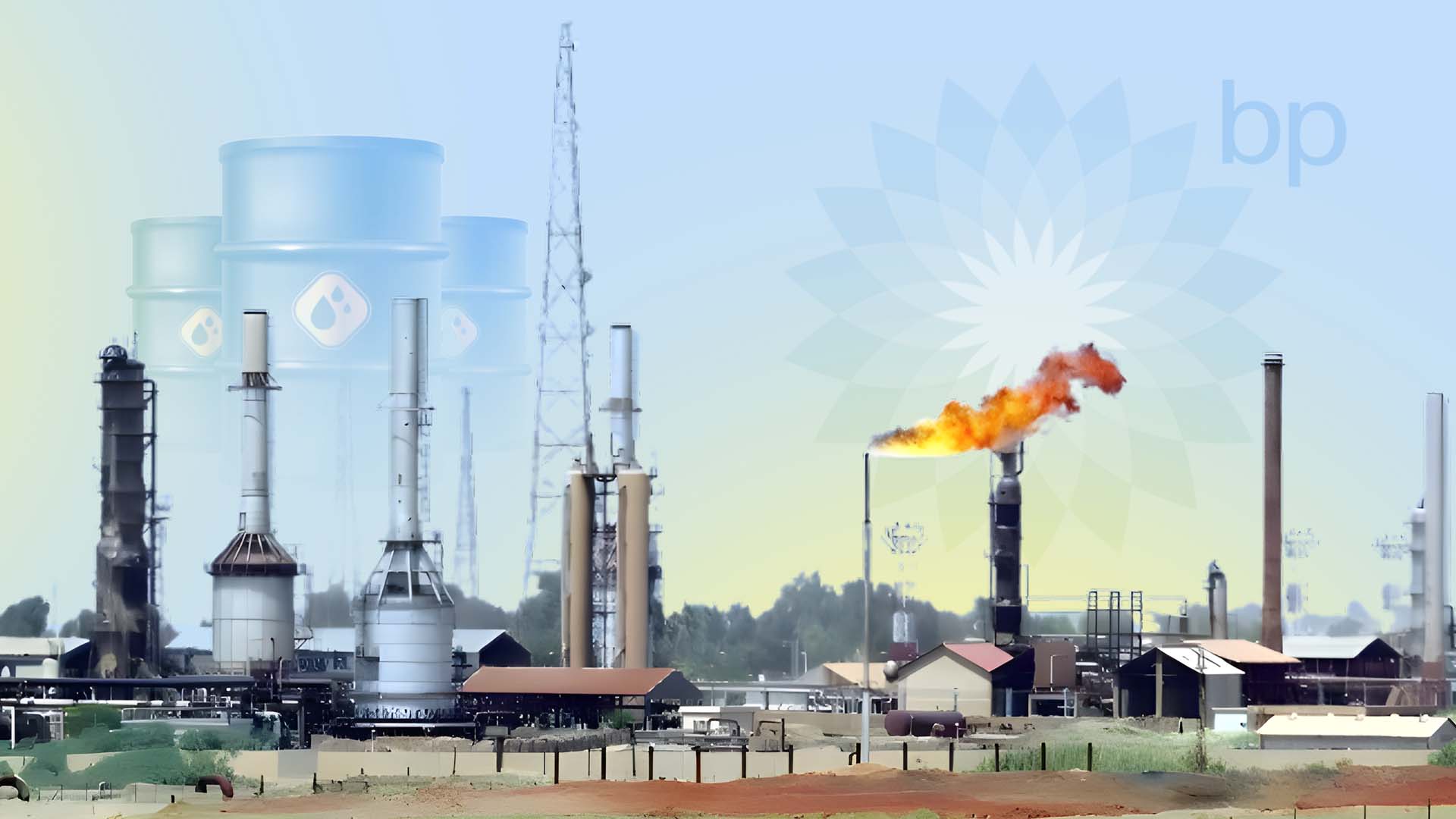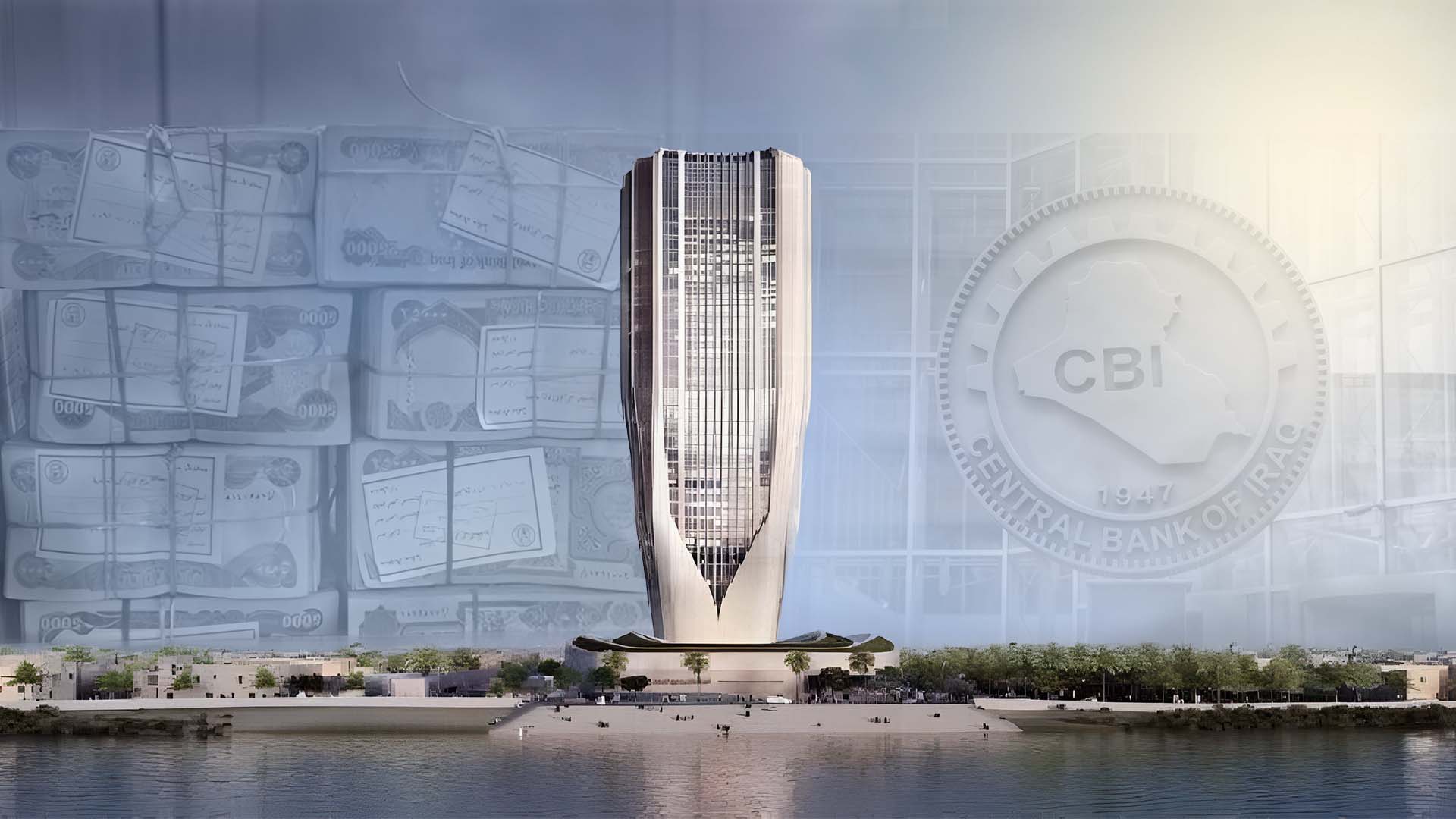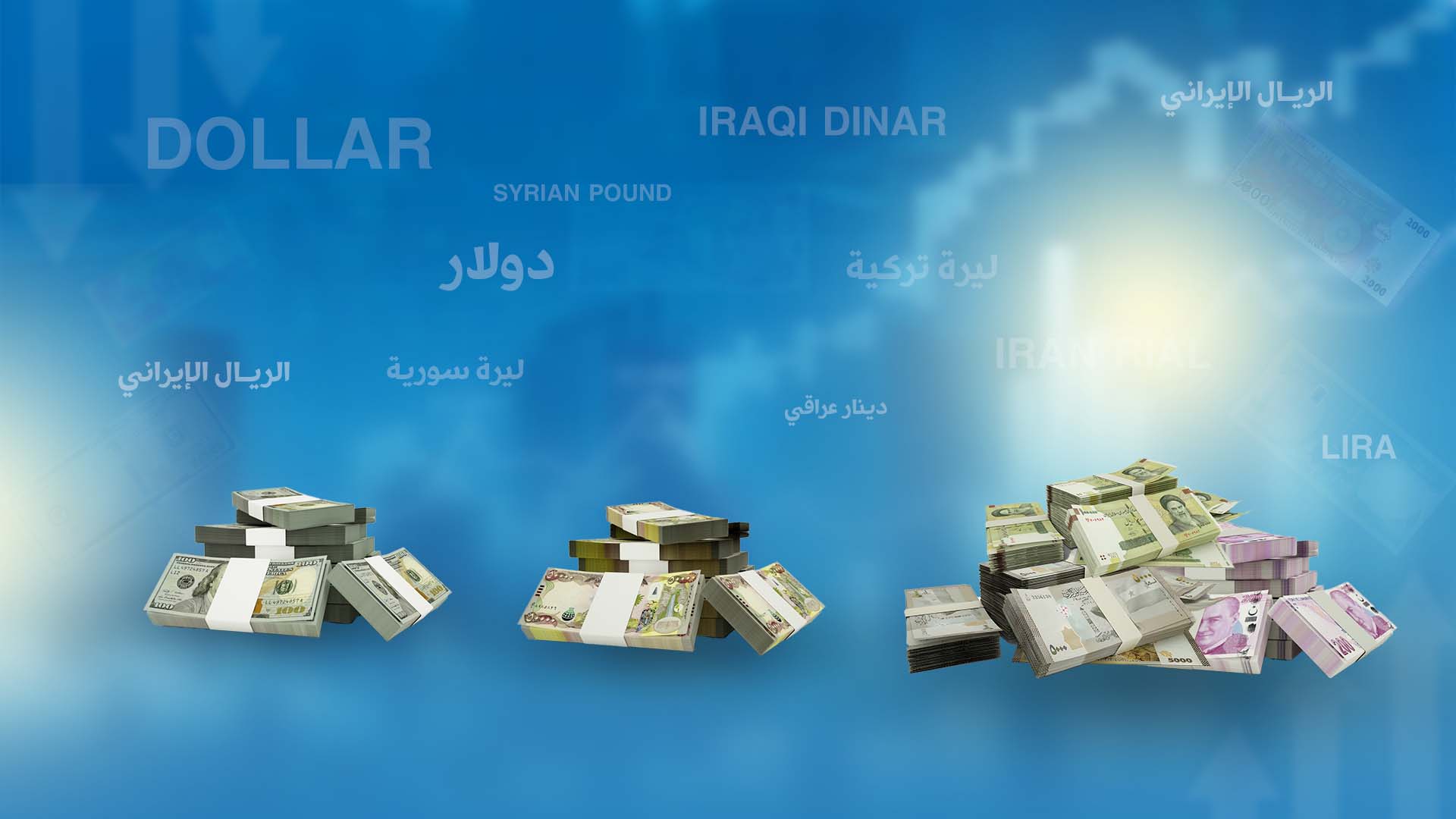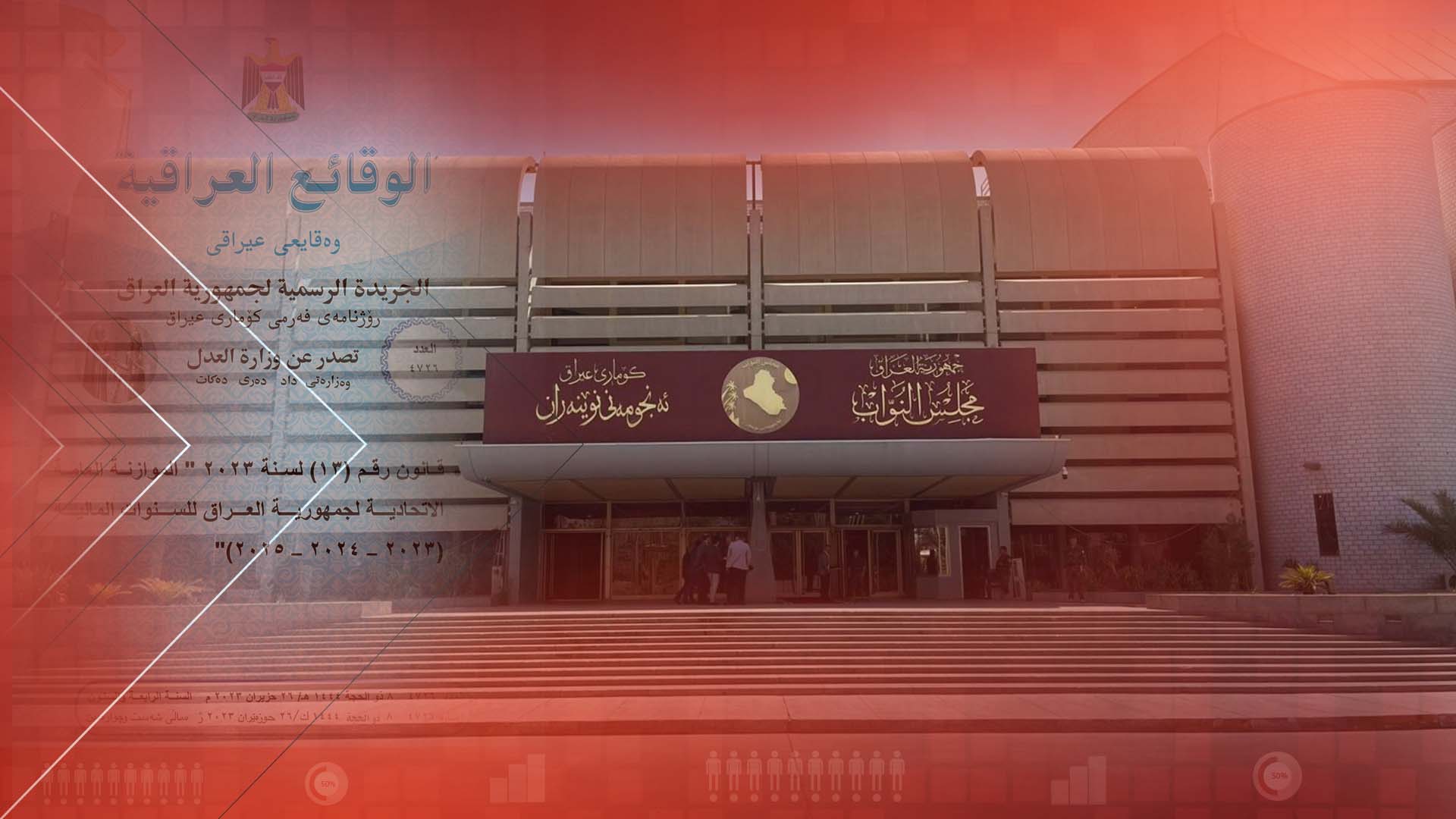It is planned that next week, Dana Gas and its partners will conduct the first initial pre-production gas testing of the Khor Mor natural gas production expansion project, known as KM250. Subsequently, they will move to the production phase, increasing daily production by 250 million cubic feet of gas to 540 million cubic feet of gas for the company's operations at the Khor Mor field. This will bring the level of natural gas production in the Kurdistan Region to over 1 billion cubic feet per day.
While this may be a data entry error, we are talking about a report published after two to three months, and an error of one zero less or more means changing thousands to millions. After correcting the data, it was noted that there was an error in April 2025 data where the same figures from March 2025 were entered for revenues. In May 2025, everything was combined. What draws attention in the data correction is the decrease in revenues during these five months, whether oil or non-oil revenues.
From July 14-16, 2025, oil fields on the borders of Erbil and Duhok provinces were targeted by bombing drones. Until now, drone attacks on various borders of these two provinces continue, and the number is increasing day by day, despite condemnations from America, Iraq, and demands from the Kurdistan Region to stop the attacks.
On the morning of July 15, 2025, the Sarsang oil field was attacked by a drone. The American company HKN, which operates the field and owns 62% of its shares, is the main stakeholder. On the same day, just hours later, the Iraqi Ministry of Oil officially announced the signing ceremony of the contract between HKN and the North Oil Company for the development of the Hamrin oil field, with a daily production capacity of 60,000 barrels of oil and 45 to 50 million cubic feet of gas.
The Drying Up of Iraq and the Kurdistan Region: A Study of Domestic Challenges and Transboundary Water Control
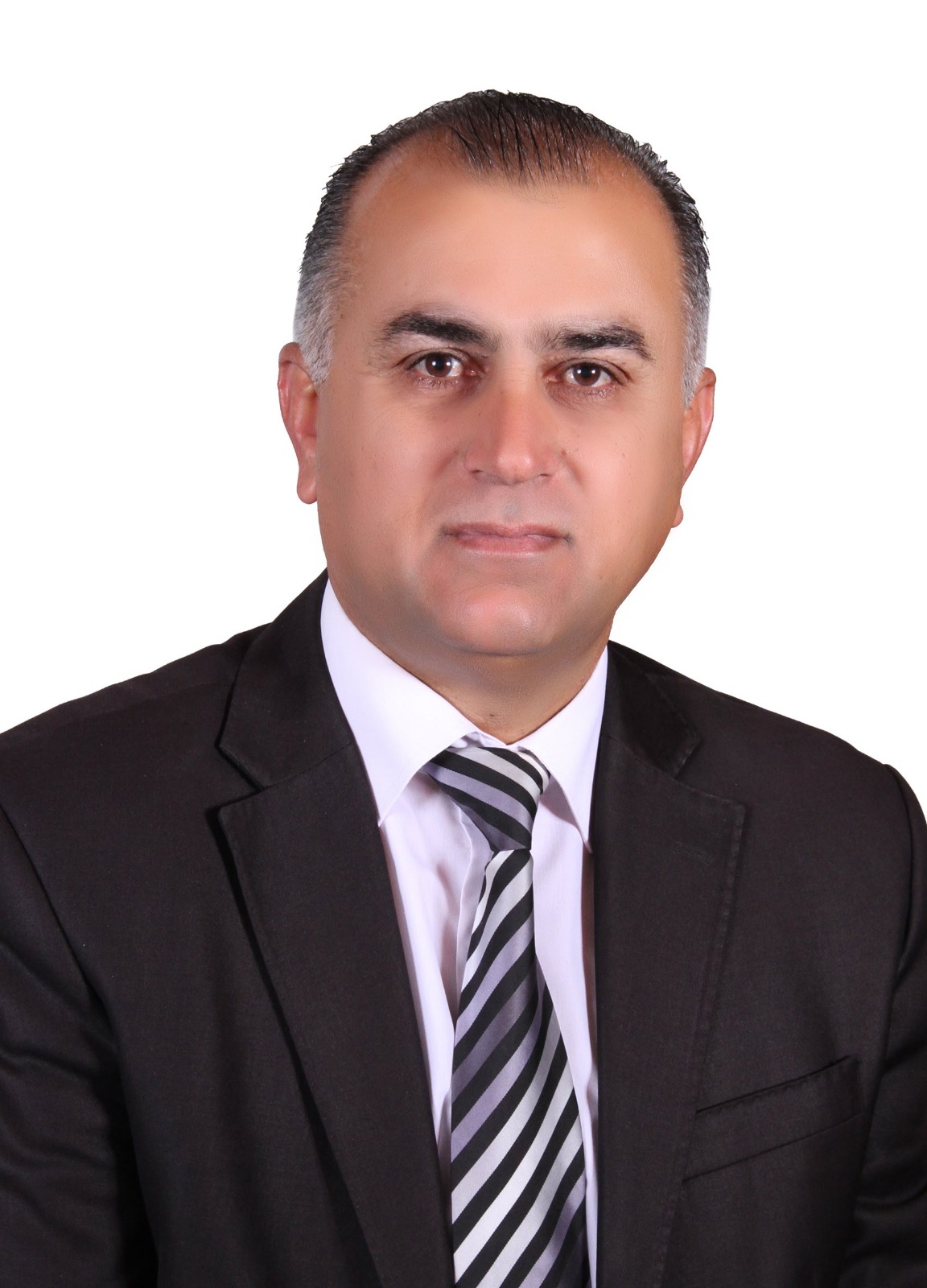
Iraq and the Kurdistan Region have faced a major crisis from both external and internal dimensions: the water scarcity crisis. At present, Iraq and the Kurdistan Region are confronting an unprecedented threat of drought in their history, particularly as the annual renewable water availability per individual is currently approximately 600 cubic meters and is expected to decrease by half or more in the coming decade.
The Drying Up of Iraq and the Kurdistan Region: A Study of Domestic Challenges and Transboundary Water Control

Iraq and the Kurdistan Region have faced a major crisis from both external and internal dimensions: the water scarcity crisis. At present, Iraq and the Kurdistan Region are confronting an unprecedented threat of drought in their history, particularly as the annual renewable water availability per individual is currently approximately 600 cubic meters and is expected to decrease by half or more in the coming decade.
A Decade of the Salary Crisis Between Iraq and the Kurdistan Region: Unveiling the Other Side of the Numbers

This crisis has once again deepened, and the rhetoric between Erbil and Baghdad has escalated into mutual accusations. These tensions will inevitably have consequences, both immediate and long-term—whether through the repetition of temporary solutions or the emergence of a new approach. However, a decision from the Federal Court alone cannot resolve this persistent crisis between Erbil and Baghdad, nor can the fate of these financial disputes be postponed until after the Iraqi parliamentary elections in November 2025. Instead, all financial issues must be addressed transparently, based on the numbers and data from Iraq’s Ministry of Finance. In this report, we present both the relevant figures and two fundamental options for resolving this ongoing dispute.
The Washington and London Agreements: Future Prospects for Oil and Natural Gas Relations between Erbil and Baghdad

On May 19, 2025, the Ministry of Natural Resources of the Kurdistan Regional Government signed two contracts in Washington for the development of both the Miran and Kurdamir fields with HKN and Western Zagros. Four months before that date, Iraq's Ministry of Oil signed a memorandum of understanding in London for the development of four Kirkuk oil fields with British BP, and subsequently, on February 26 and March 26, 2025, all contracts were signed for BP to begin operations in Kirkuk.
The Kurdistan Region has the capacity to produce over 6,700 megawatts of electricity and currently generates 4,300 megawatts, indicating it still has the potential to produce an additional 2,400 megawatts. In the event of an interruption in Iranian electricity and gas supplies due to American pressure, Iraq could benefit from this surplus, just as it presently purchases 1,600 megawatts from the Kurdistan Region. Furthermore, the Kurdistan Region is expected to make a significant advancement in gas production early next year, reaching one billion cubic meters. Whether Iraq opts to purchase the gas directly or it is converted to electricity for export, Iraq can rely on the Kurdistan Region in this regard.
Gas Flaring: A Field-by-Field and Province-by-Province Analysis in Iraq and the Kurdistan Region

In 2023, 214 oil production fields and oil refinery locations were identified in Iraq and the Kurdistan Region that had high temperature and carbon dioxide emission density levels, which was a result of the burning of associated gas from these locations. During field visits to these sites located in the governorates of the Kurdistan Region, it was observed that the amounts reported in the data reflected the intensity and density of the flames from the pipes that were installed for burning the gas.
Review of the Kurdistan Region Oil Production in 2024 and the obstacles to its export in 2025

All eyes were on the tripartite meeting in Baghdad that took place last week between international oil companies (IOC) and officials from Erbil and Baghdad, which ended without results. This comes after Baghdad had previously announced that the resumption of Kurdistan Region oil exports via pipeline would happen in the coming hours. This did not happen because the international oil companies that have invested in the Kurdistan Region and produce approximately two-thirds of the total Kurdistan Region oil are not willing to put oil into the pipeline under the current terms agreed upon between Baghdad and Erbil.
Beyond the importance of the disputes between Erbil and Baghdad on this issue, there are two other important questions: Iraq's perspective on energy issues (oil and gas), and the importance of Kirkuk's oil reserves and BP's continuous efforts to invest in Kirkuk's oil fields during the era of net zero and transition to renewable energy
The amount of money sold, domestically and internationally, by the Central Bank in dollars this year has exceeded $62 billion, resulting in the receipt of dinars in equivalent proportion, averaging approximately 80.6 trillion dinars for the year. Non-oil revenues generated from taxes, fees, and customs by the end of October 2024 amounted to 14.3 trillion dinars. Combined, these revenues total around 95 trillion dinars. However, by the end of October, Iraq's total expenditures had reached 122 trillion dinars. With two months of expenditures still unaccounted for, it is evident that the dinar reserves derived from oil-based dollar revenues have been exhausted.
The causes of depreciation in neighboring currencies vary. The decline of the Iranian rial is attributed to external factors, including US and European sanctions. The Turkish lira's depreciation stems from a growing fiscal deficit, budget imbalances, and political stances taken by the AKP in response to regional developments. Meanwhile, the collapse of the Syrian pound can be traced to ongoing war, instability, economic sanctions, and uncertainty surrounding the emerging Jolani-led state. Why does the Iraqi currency fluctuate daily in the market, consistently trading at over 20,000 dinars above the Central Bank's official rate for every $100?
The three-year Iraqi budget provided a comprehensive framework for the country’s revenues and expenditures based on initial estimates. However, the recent census has corrected these estimates, revealing significant discrepancies. As the time approaches to amend and approve the 2025 budget tables, it is imperative to review expenditures, provincial allocations, the Kurdistan Regional Government (KRG) budget, and revenue projections.

